Eat This, Riverside: Craft Coffee and Creative Pastries from Slow Bloom and Hayet Albi - They Might Just Save Capitalism from Itself
This pair of Redlands businesses are coming to Riverside, bringing an exciting worker-owned model as well as thrilling coffee and pastries.

In addition to praiseworthy eats this week, my mission is to share my enthusiasm for a pair of worker-owned cooperatives that are about to burst onto the Riverside food scene. As Ken Crawford wrote earlier in the Gazette, Slow Bloom Coffee Roasters and Hayet Albi, a "Levantine" bakery, are building a space in downtown Riverside to house both businesses. The vision for the space and the businesses that will occupy it represents a true departure from the norm for food-service enterprises.
Hospitality, as an industry, can be deeply unfriendly to its employees. That's why it's so invigorating to talk to people like Kelley Bader and Nizar Aridi from Slow Bloom Coffee and Hayet Albi. As leaders in worker-owned cooperatives, they are able to focus on creating humane and functional workplaces without compromising product quality or sacrificing growth. The cooperative model allows these businesses to treat the people behind the counter as valued contributors instead of financial liabilities. Slow Bloom and Hayet Albi represent a thrilling alternative to the prevailing corporate culture.
I sat down with Bader and Aridi on the sun-drenched patio of Slow Bloom's Redlands outpost to discuss why they decided to build their businesses this way, how their personal histories inform their entrepreneurial activities, and what the future holds for their Riverside location.
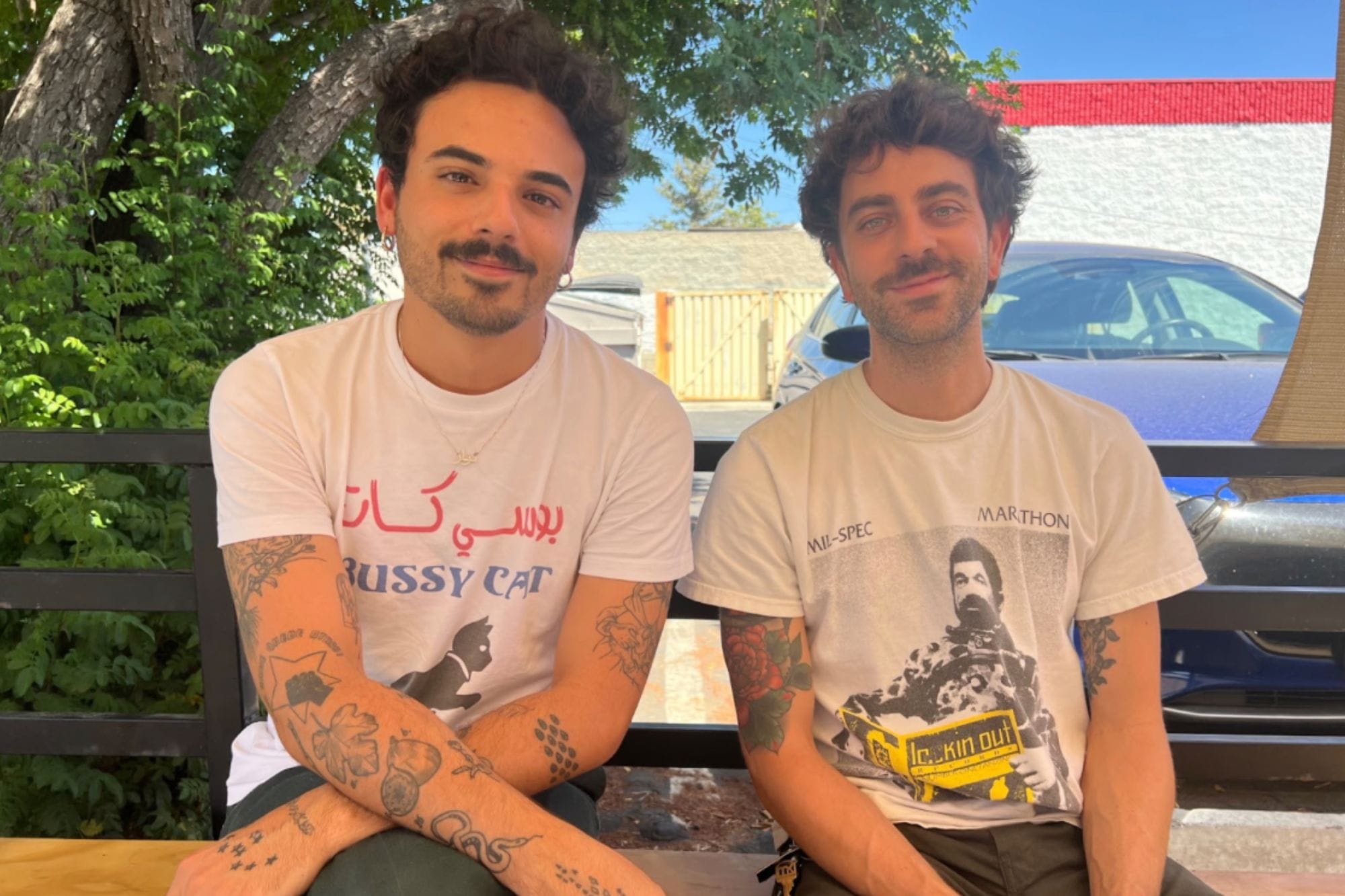
Bader is president and lead roaster of Redland's Slow Bloom Coffee, the worker-owned cooperative he and his fellow baristas founded after their erstwhile employer, Augie's Coffee, closed its doors in 2020 in reaction to their unionization campaign. Aridi is the principal operation of Hayet Albi, which three workers own. The bakery has thrown in its lot with Slow Bloom in its plan to open a roastery/cafe/bake shop/restaurant in downtown Riverside.
Slow Bloom's first cafe opened in Redlands in March 2022 in a quirky former glass shop. Bader told me that the cafe has been too big for its space since the day it opened. "Because the cafe space is too small, we roast our beans in a shared commercial roastery and have to pay a fee to the facility for every pound of coffee we produce."
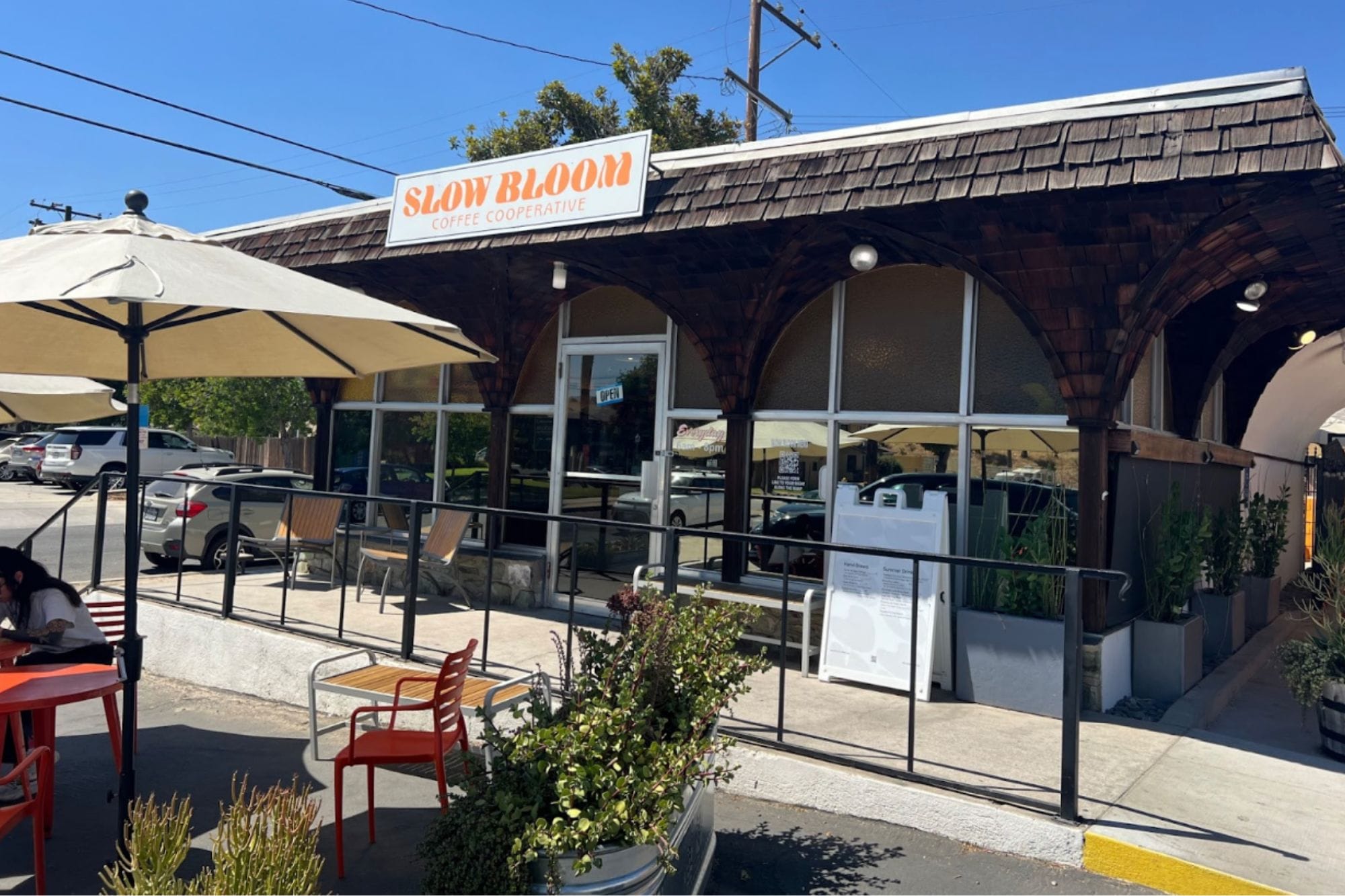
Aridi also works from a rented commercial kitchen (in Upland!), producing 50 kilograms of croissants, danishes, and other laminated pastry every week, along with hundreds of doughnuts, both of which he wholesales exclusively to Slow Bloom. In addition to Hayet Albi, Aridi operates a couple of other pop-up food businesses, which have gone on the back burner while the bakery grows. 3Azeemi is a "hyper-seasonal Lebanese dining experience," and Ojalá explores the history of Middle Eastern dishes in Mexico, like tacos arabes, the shawarma-like taco variety served by Lebanese immigrants in Puebla.
Neither roastery nor bakery is big enough to take on the risk of a new production facility/cafe on its own. Still, together, they feel confident signing a lease on a 3,000-square-foot former laundromat at the corner of 10th and Market in downtown Riverside. The new facility will have a cafe and tasting room as well as roasting and packaging equipment, plus the production bakery. Aridi hopes to expand from baked goods to dinner service featuring dishes that reflect his background and interests.
In the meantime, you can try Hayet Albi's baked goods and Slow Bloom's beans and drinks in Redlands at the main Slow Bloom cafe on Colton Ave or Riverside at a weekly pop-up the team operates every Saturday morning in downtown Riverside. All proceeds from the pop-up offset the cost of construction for the new Riverside cafe.
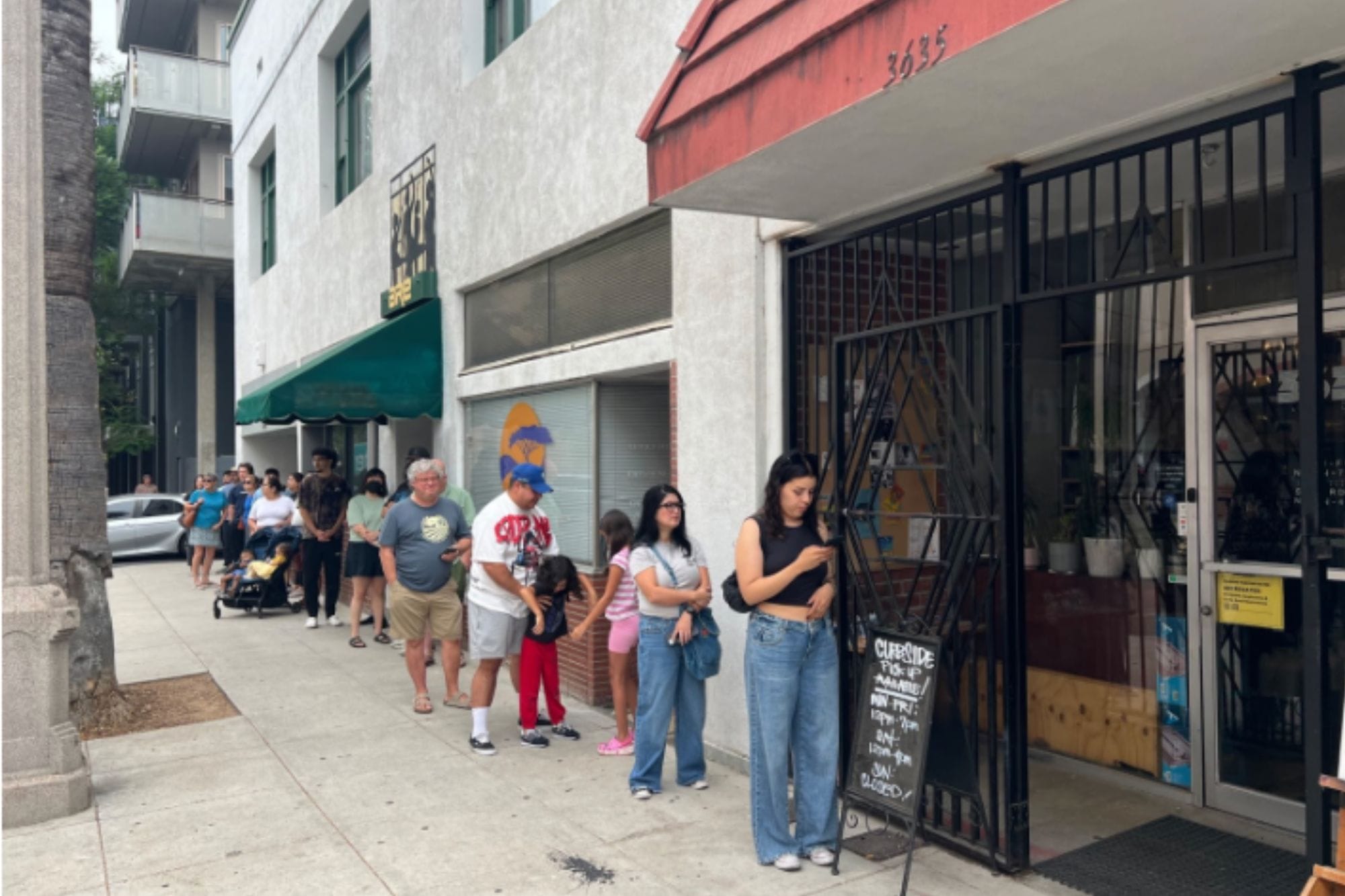
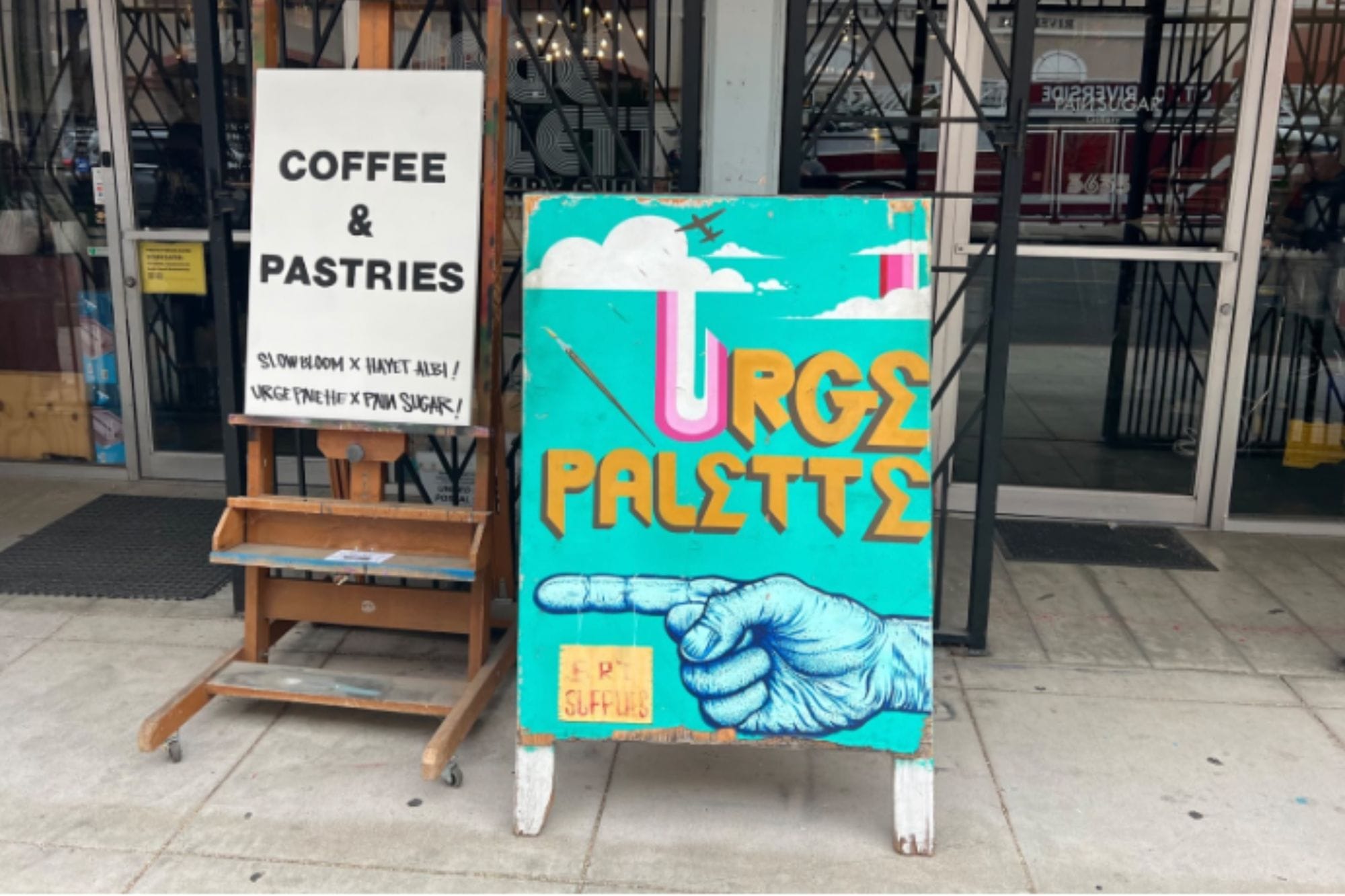
The coffee is excellent. Like many independent roasters, Slow Bloom's typical beans are a lighter roast, avoiding any Starbucks-style burnt notes, but the blends I sampled steered clear of the sourness that sometimes comes along with a lighter color roast. The prepared drinks are creative and delicious. The morning I was there, I tried an iced orange mocha latte garnished with vanilla whipped cream and a candied orange slice, amped with orange-flavored syrup - refreshing and crisp. I also sampled a salted coconut "hojicha" latte, a sweeter concoction with roasted matcha blended to provide a smoky herbal grace note.
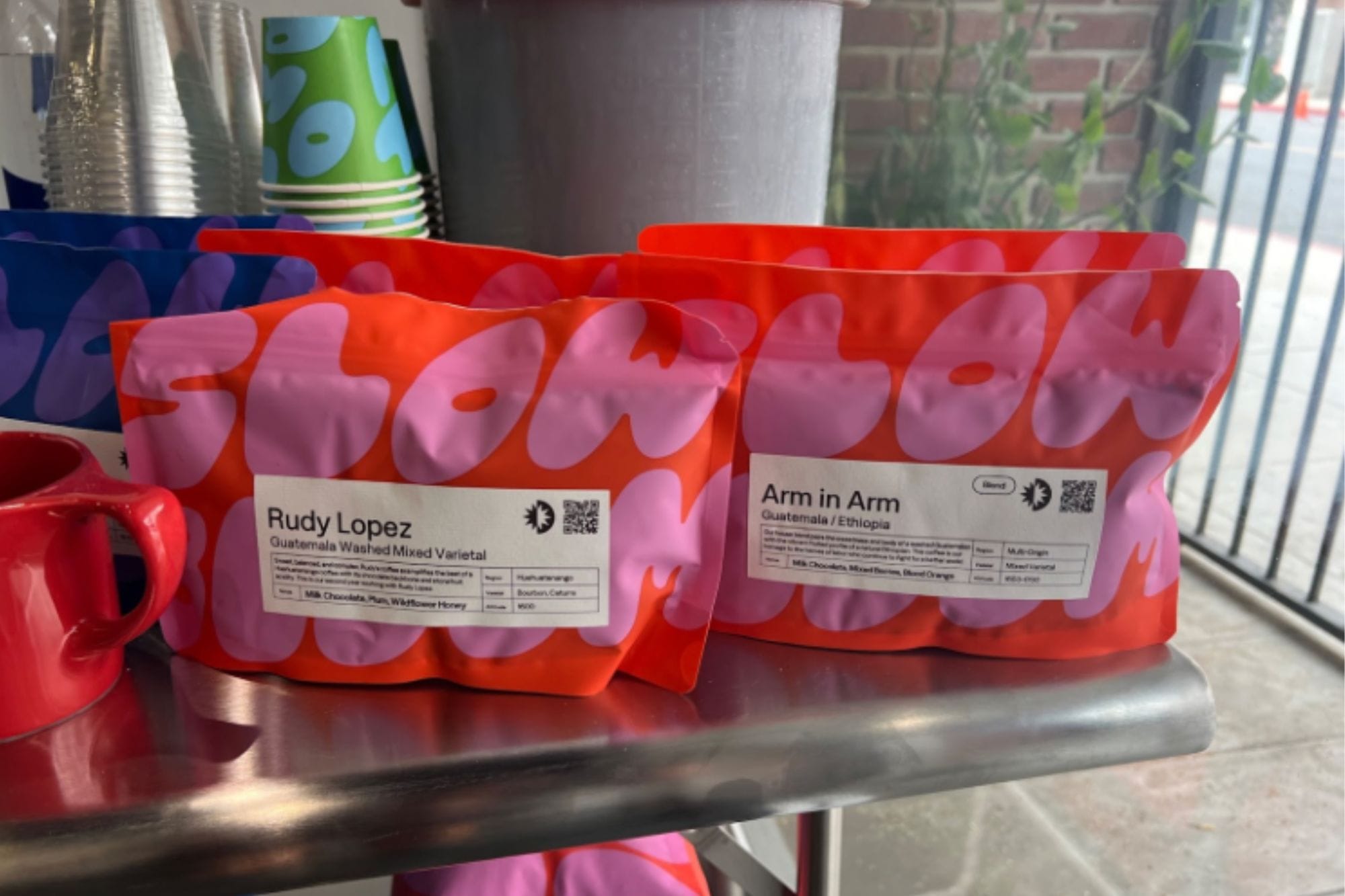
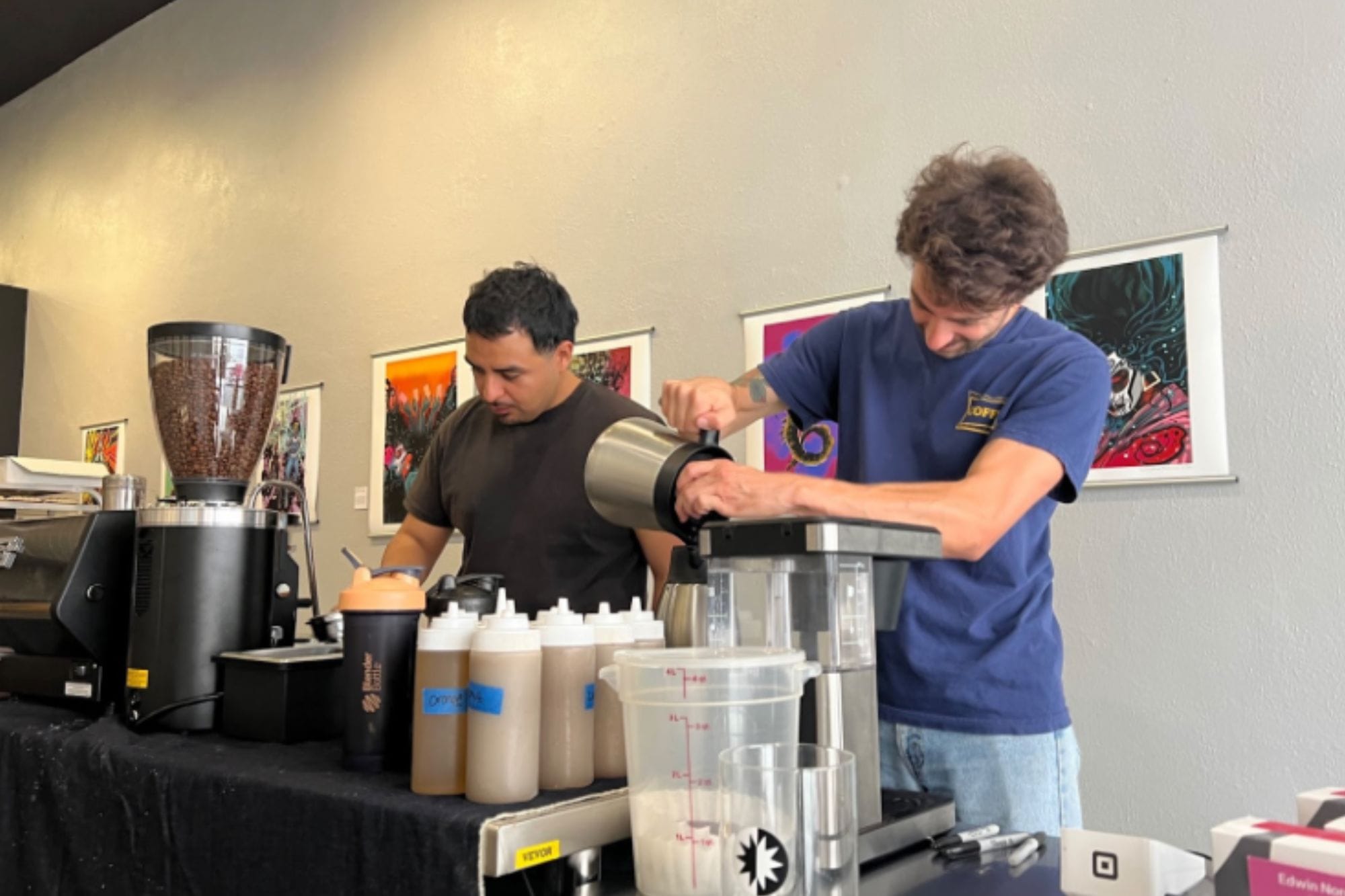
Hayet Albi's pastries are a mashup of flawlessly executed classic French techniques with flavors inspired by Aridi's Lebanese heritage. His plain croissant and classic pain au chocolate are exemplary versions, light and airy, flaky beyond belief, and buttery-rich, with an Instagram-ready alveolar cross-section. These are astonishingly good pastries.

On this particular morning, he also offered "pain au fromage" - a Gruyere-filled cheese croissant dusted with sesame, nigella seeds, and za'atar, the potent Middle Eastern spice blend. Another croissant was filled with subtle rose-water accented creme diplomate and dusted with crumbled pistachios.

Levantine flavors also graced a blueberry-thyme danish, which was filled with a white-chocolate ganache mixed with tangy labneh (a rich Lebanese full-fat yogurt), an olive-oil orange blossom pound cake, and a vegan tahini-sesame chocolate chunk cookie; Not to mention the doughnuts! Hayet Albi offered a fig-jam filled yeasted doughnut glazed with fig-leaf infused frosting, a sesame-chocolate topped "Boston Creme" busting out with halva-flavored custard, and a traditional yeasted donut glazed with hibiscus-rose icing and a sprinkling of ground pistachio.

The products on offer are excellent, but the model for the business is, in many ways, even more compelling. Many employee-owned cooperatives spring into existence when owners of an existing business decide to sell to their staff. It's less common to see businesses established from the outset as worker-owned. But worker ownership is central to Slow Bloom, coming as it did out of the turmoil that brought the Augie's Roastery to a close and to Hayet Albi. Aridi also had troubling experiences working in coffee shops with traditional ownership models - struggling with managerial indifference to worker safety, hostile and racist work environments, and unfair pay and scheduling practices. He sees cooperative ownership as a corrective to these prevailing practices.
Slow Bloom's model is democratic and thoroughly thought out. Each employee is an equal member of the cooperative corporation, with equal voting rights and, most unusually, equal pay. Slow Bloom publishes a "transparency report" on their website that makes for very compelling reading, laying out the vision for how each worker-owner contributes to the decision-making that governs the roastery's operations. Some types of decisions are settled by direct vote; others are delegated to managers elected by the cooperative. Workers are accountable to each other, not to an absentee owner or a tyrannical manager.
Even more interesting, Slow Bloom is a union shop with members affiliated with a Teamsters local. It is a little counterintuitive to conceive of a worker-owned business deciding to join a union: the workers are negotiating a contract, in effect, with themselves. There's no mustache-twirling owner trying to extract unfair concessions or maximize profit at the expense of worker safety or pay.
Bader is attuned to this incongruity, but to him, it makes sense for Slow Bloom to organize as a union shop. The union provides support and camaraderie in a society where most businesses (and consumers) may not share the co-op's values and priorities. Membership provides a built-in network and support structure, says Bader. "More traditional small businesses have all these communities that are built up and meant to support them. Coops don't have that. So, for us, aligning with the Teamsters is a way to align with other workers who have similar values and who see worker power as an end in itself. We were alone and isolated in what we were trying to do, but not anymore".
He also sees the affiliation with the union as a way to help spread his vision for humane workplaces into the rest of the hospitality industry. "We would like to see other shops in our industry have unions," he told me, "and they need a model for that; they need a contract that is actually catered to a single coffee shop, that doesn't destroy the business, but also has meaningful gains for workers. We're trying to author that ourselves so that we can export it, you know, as a template."
However, most important to both Slow Bloom and Hayet Albi is the commitment to quality, craft, and creativity that springs out of worker ownership. That shared ownership creates truly excellent results based on what I've eaten and drunk at the Saturday pop-ups.
If you want to try for yourself, head on down to Urge Palette at 3635 9th Street; the pop-up operates Saturday mornings from 9 a.m. to noon. If you have your heart set on pastries, get there early—at the first two iterations of the pop-up, Hayet Albi sold out well before closing. Or pay a visit to Slow Bloom in Redlands at 420 W. Colton Ave, open seven days a week from 6:00 a.m. to 8:00 p.m. You can follow Hayet Albi on Instagram, and Slow Bloom, too.







